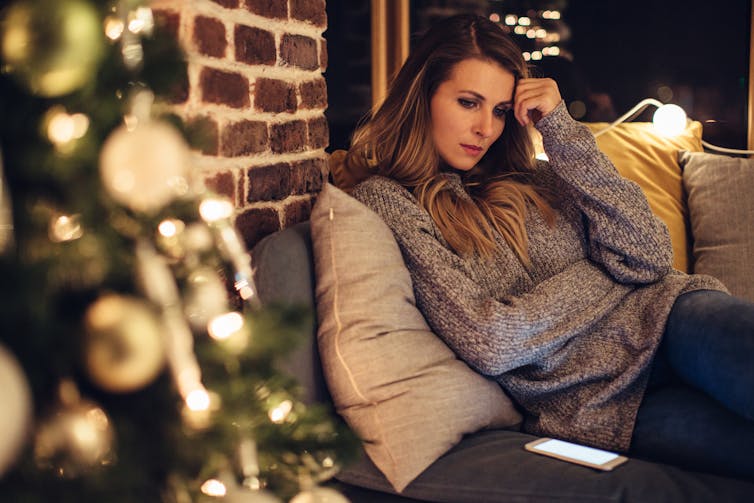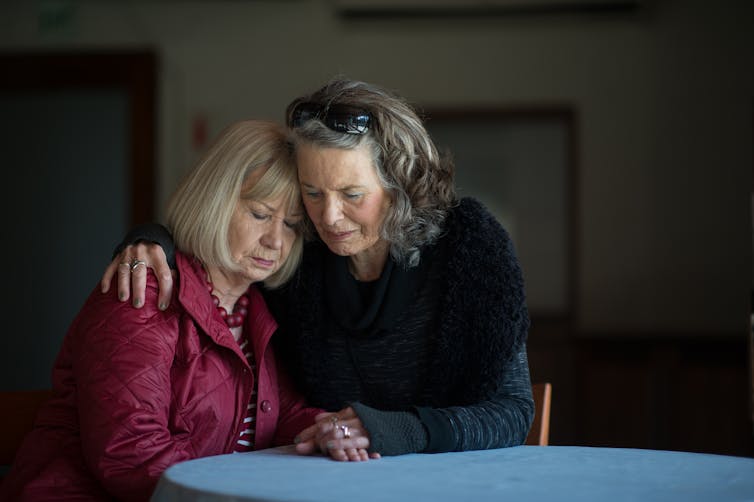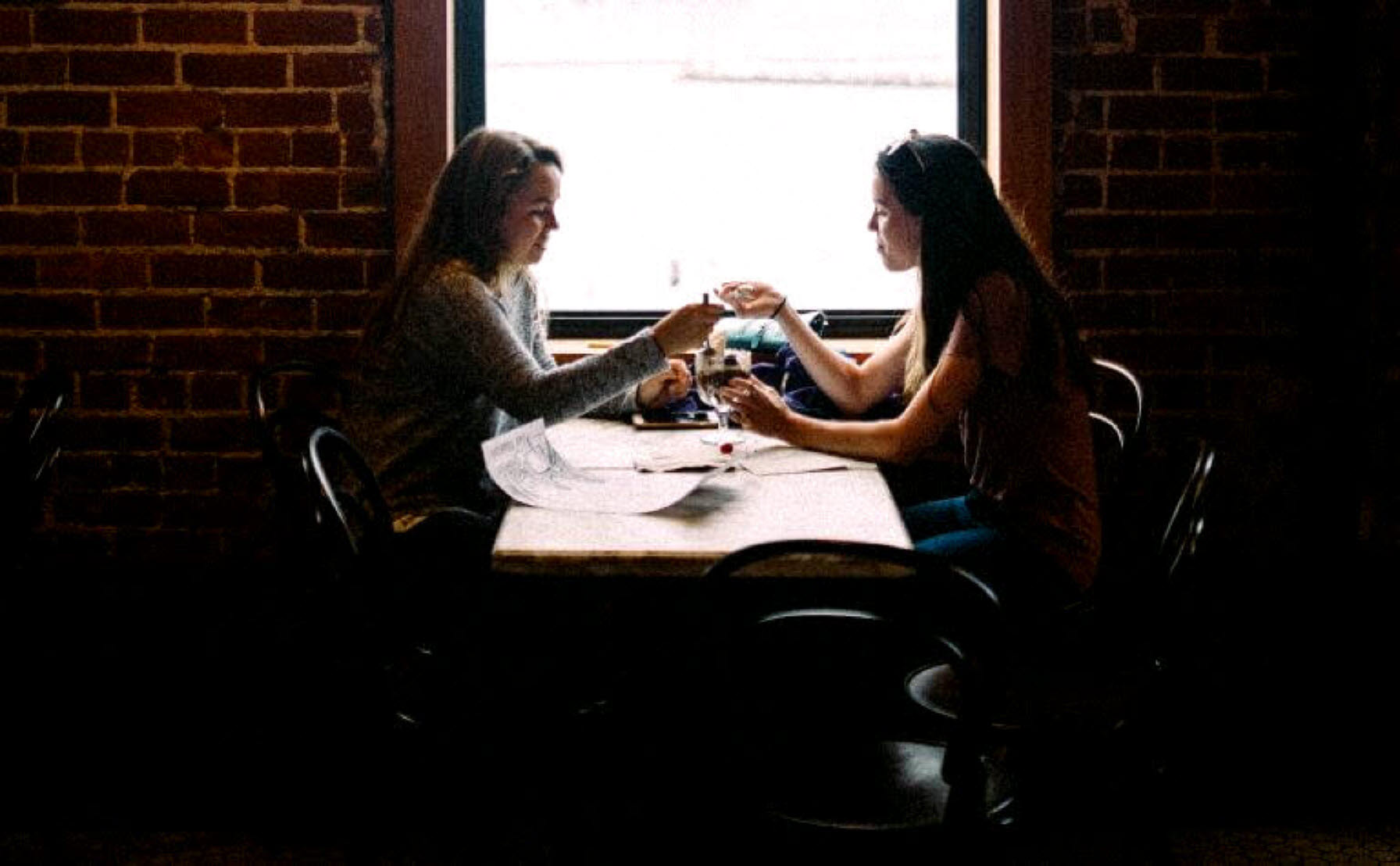
Michael R. Nadorff, Mississippi State University and Julie Cerel, University of Kentucky
No matter the merriment of the season, the #holidays remain a struggle for those who have lost a loved one to #suicide.
In 2020, #COVID-19 isolated many people from their families. Ironically, that #isolation may have spared #suicide-loss survivors some suffering; with no family gathering, one was less likely to notice the empty seat at the table. But this year, with many families coming together, #grief will surely find its place.
Half of all #Americans know someone who has died by #suicide. I am one of them, and the death of my grandmother inspired me to become a #suicide researcher. My co-author and colleague, a fellow #psychologist and professor of #socialwork, has examined how families can best cope after a #suicide. Here is a brief look at some of the startling things we have learned.

Staggering statistics, tragic losses
#Suicide impacts far more people than you might think. In 2020, a staggering 45,800 #Americans killed themselves]. #Suicide is the 11th-leading cause of death overall in the U.S. and the second-leading cause of death for #youth and young #adults. There are more suicides than deaths from car accidents, homicides or breast cancer every year in the U.S.; between 1999 and 2018, the #suicide rate increased by 35%.
Stunning as these statistics are, they reveal little about the devastation that #suicide leaves behind. Our work demonstrates that, for each #suicide, an average of 135 people knew the person. That’s 6 million #Americans every year who are directly impacted from the loss of a life to #suicide.
Along with #grief, many #suicide-loss survivors feel guilty. They believe they contributed to the death or could have prevented it. Some spend the rest of their lives wondering “What if?” One study shows that 92% of #parents who lost a #child to #suicide experienced guilt; 34% report the guilt was the worst part of their #grief.
Helping those left behind
Although survivors often say “I should have known,” no one can predict #suicide, not even the experts. Researchers and clinicians are no better at forecasting #suicide than they were 50 years ago. Their odds of a correct prediction are roughly the same as a coin flip. To expect a layperson to succeed where experts frequently fail is unreasonable.
There are hundreds of risk factors for most suicides; single-cause suicides are very rare. Those who feel solely responsible for a loved one’s #suicide are being unfair to themselves.
Put simply, those who kill themselves feel lonely and disconnected. They feel like their death would be better for friends and loved ones. The pain becomes so overwhelming that the person overcomes the most powerful instinct of the human species: self-preservation.
#James Donaldson notes:
Welcome to the “next chapter” of my life… being a voice and an advocate for #mentalhealthawarenessandsuicideprevention, especially pertaining to our younger generation of students and student-athletes.
Getting men to speak up and reach out for help and assistance is one of my passions. Us men need to not suffer in silence or drown our sorrows in alcohol, hang out at bars and strip joints, or get involved with drug use.
Having gone through a recent bout of #depression and #suicidalthoughts myself, I realize now, that I can make a huge difference in the lives of so many by sharing my story, and by sharing various resources I come across as I work in this space. #http://bit.ly/JamesMentalHealthArticle
Order your copy of James Donaldson’s latest book,
Celebrating Your Gift of Life:
From The Verge of Suicide to a Life of Purpose and Joy
Don’t withdraw
Often, family and friends don’t know what to say to someone coping with a #suicide loss during the #holidays, so they say nothing. It feels safer.
But withdrawing does not help. Instead, just be there. You don’t have to make a speech; “I’m so sorry” is enough. Let them know they are not alone. Let them talk if they want to. Let them share stories about the person so that the death – those last minutes of their life – does not define how the lost loved one is remembered. Don’t be afraid to say the person’s name or ask questions about them.
These very simple acts of listening, being present and offering space to talk about and reflect on the person who has been lost will be more meaningful than you can imagine. This is particularly true when others in the survivor’s life are withdrawing because they don’t know how to interact with someone who has experienced this type of loss. For those you care about who have lost a loved one to #suicide, you can help make the #holidays a little easier and maybe even brighter.
The #NationalSuicidePreventionLifeline is available 24/7 by phone at 1-800-273-8255 and through the Crisis Text Line, 741-741.
Michael R. Nadorff, Associate Professor of Psychology, Mississippi State University and Julie Cerel, Professor of Social Work, University of Kentucky





